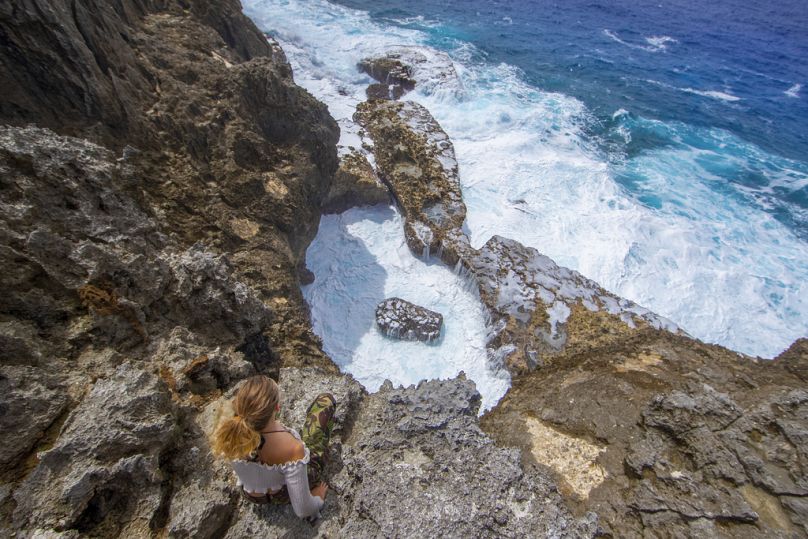Sponsors will pay to protect one square kilometre of Niue's ocean territory from threats like illegal fishing and plastic pollution for 20 years.
The tiny Pacific island nation of Niue has come up with a novel plan to protect its vast and pristine territorial waters - it will get sponsors to pay.
 ADVERTISEMENT
ADVERTISEMENT
 ADVERTISEMENT
ADVERTISEMENT
Under the plan, which was being launched by Niue's Premier Dalton Tagelagi on Tuesday in New York, individuals or companies can pay $148 (€139) to protect 1 square kilometre of ocean from threats such as illegal fishing and plastic waste for a period of 20 years.
Niue hopes to raise more than $18 million (€17 million) from the scheme by selling 127,000 square-kilometre units, representing the 40 per cent of its waters that form a no-take marine protected area.
Niue wants to protect the ocean for future generations
In an interview with The Associated Press before the launch, Tagelagi said his people have always had a close connection with the sea.
"Niue is just one island in the middle of the big blue ocean," Tagelagi explained.
"We are surrounded by the ocean, and we live off the ocean. That's our livelihood."
He said Niueans inherited and learned about the ocean from their forefathers and they want to be able to pass it on to the next generation in sustainable health.
Most fishing in Niue is to sustain local people, although there are some small-scale commercial operations and occasional offshore industrial-scale fishing, according to the UN's Food and Agriculture Organization.
"Because of all the illegal fishing and all the other activities at the moment, we thought that we should be taking the lead, to teach others that we've got to protect the ocean," Tagelagi added.
Threatened by climate change, pollution and illegal fishing
Unregulated fishing depletes fish stocks which can't then recover while plastics can be ingested by or entangle marine wildlife.
Human-caused climate change has also led to warmer and more acidic oceans, altering ecosystems for underwater species.
Niue is especially vulnerable to rising sea levels threatening its land and freshwater, and the island is at risk of more intense tropical storms charged by warmer air and waters.
With a population of just 1,700 people, Niue acknowledges it needs outside help. It's one of the smallest countries in the world, dwarfed by an ocean territory 1,200 times larger than its land mass.
Under the plan, the sponsorship money - called Ocean Conservation Commitments - will be administered by a charitable trust.
Niue will buy 1,700 sponsorship units, representing one for each of its citizens.
Other launch donors include philanthropist Lyna Lam and her husband Chris Larsen, who co-founded blockchain company Ripple, and US based non-profit Conservation International, which helped set up some technical aspects of the scheme.
Why has Niue chosen this novel approach?
Maël Imirizaldu, marine biologist and regional leader with Conservation International and the Blue Nature Alliance, said one problem with the conventional approach to ocean conservation funding was the need for places like Niue to constantly seek new funding on a project by project basis.
"The main idea was to try and switch that, to change the priority and actually help them have funding so they can plan for the next 10 years, 15 years, 20 years," Imirizaldu explains.
Simon Thrush, a professor of marine science at New Zealand's University of Auckland who was not involved in the plan, said it sounded positive.
"It's a good idea," Thrush said, adding that as long as the plan was thoroughly vetted and guaranteed over the long term, "I'd be up for it."











